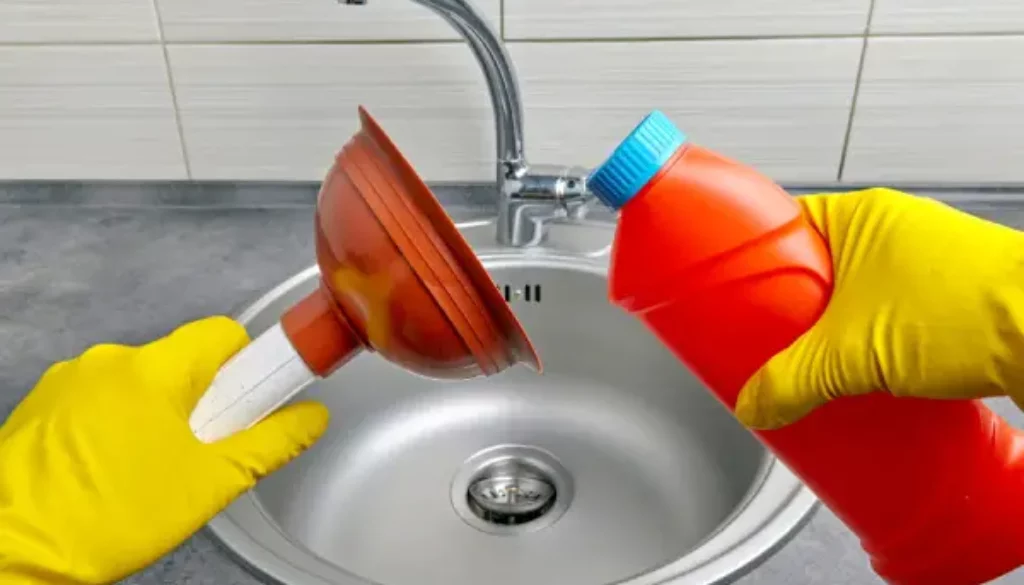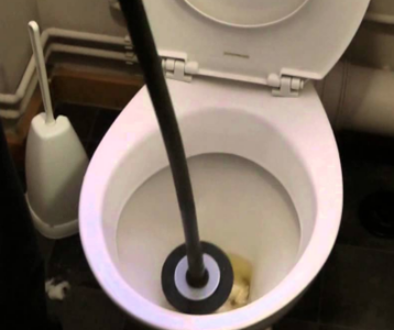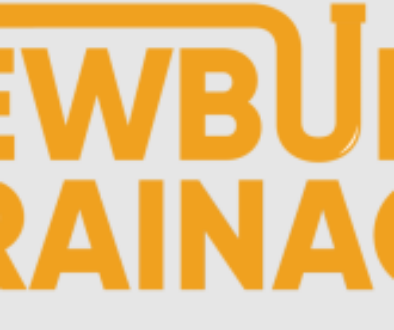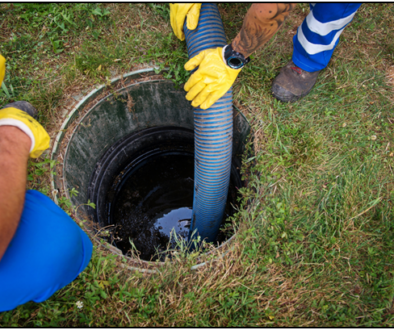Can You Use Drain Unblocker With A Septic Tank
Feeling stumped about whether you can use drain unblocker with a septic tank? Worry not, my friend! We’ve got you covered. In this article, we’ll explore this common plumbing conundrum and shed some light on the dos and don’ts of maintaining your septic tank.
Now, picture this: you’ve got a clogged drain and reach for your trusty drain unblocker, but then the nagging question pops into your head: “Can I use this with my septic tank?” It’s a valid concern, considering the delicate balance of your septic system. But fear not! We’ll unravel the mystery and provide you with the answers you need.
So, whether you’re a homeowner looking for a solution to your drain troubles or just a curious soul seeking wisdom about septic tanks, this article will be your guide. Prepare to dive into the world of drain unblockers and septic tanks while we lay out the facts and deliver expert advice on how to keep your plumbing flowing smoothly.
Wondering if you can safely use drain unblocker with a septic tank? While it might seem like a quick fix, it’s important to proceed with caution. Septic systems are delicate and require specific care. Harsh chemicals in drain unblockers can harm the bacteria that break down waste in septic tanks. Instead, try using natural alternatives like baking soda and vinegar to unclog drains without damaging your septic tank. Remember, prevention is key, so proper maintenance and regular pumping are crucial for a healthy septic system.
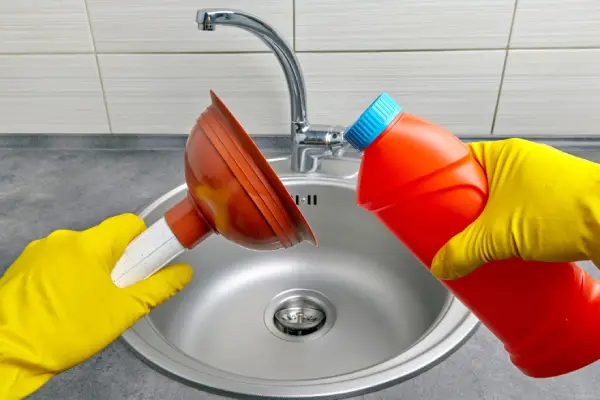
Can You Use Drain Unblocker with a Septic Tank?
When it comes to maintaining a septic tank, many homeowners are concerned about what types of products they can safely use to avoid damaging the system. One common question that arises is whether drain unblocker can be used with a septic tank. In this article, we will explore this topic in detail, providing you with the information you need to make informed decisions about your septic system maintenance.
Understanding Septic Tanks and Drain Unblockers
Before we delve into the question of whether drain unblockers can be used with septic tanks, it’s important to have a clear understanding of how both of these components work.
What is a Septic Tank?
A septic tank is an underground wastewater treatment system that is commonly used in rural areas where access to municipal sewer lines is limited. It consists of a large tank that collects and treats the household wastewater. The tank is divided into two compartments, one for solids and one for liquids. The solids settle to the bottom of the tank and are broken down by bacteria, while the liquids flow out through an outlet pipe into a drainfield for further treatment and dispersal into the soil.
A properly functioning septic tank relies on the balance of bacteria and enzymes to break down the solids and maintain the health of the system. Introducing harmful chemicals or substances can disrupt this delicate balance and lead to issues such as clogs, backups, and even system failure.
What is Drain Unblocker?
Drain unblockers are chemical formulas designed to dissolve and remove clogs in pipes and drains. They are typically used when water flow is impeded by hair, grease, soap scum, or other particles. Drain unblockers usually contain a combination of chemicals, such as sodium hydroxide or sulfuric acid, which break down the clogs and restore proper water flow.
While drain unblockers can be effective at removing clogs, they are not without their drawbacks. The strong chemicals used in these products can be corrosive and damaging to certain types of pipes, fixtures, and, potentially, septic systems if used improperly.
Is it Safe to Use Drain Unblocker with a Septic Tank?
The answer to whether or not you can use drain unblocker with a septic tank is not a straightforward one. It depends on several factors, including the type of drain unblocker, the condition of your septic system, and the specific instructions from the manufacturer.
Consider the Type of Drain Unblocker
Not all drain unblockers are created equal. Some formulas are more corrosive than others and can cause damage to pipes and septic systems. It’s important to choose a drain unblocker that is labeled as safe for septic systems. These products are usually gentler and less likely to harm the delicate balance in your septic tank.
When shopping for a drain unblocker, read the labels carefully and look for ones that specifically state they are safe for septic systems. Avoid products that contain harsh chemicals, such as sulfuric acid, which can cause significant damage to your septic tank.
Assess the Condition of Your Septic System
The condition of your septic system plays a crucial role in determining whether it can withstand the use of a drain unblocker. If your septic tank is already experiencing issues, such as backups or odors, it may be best to avoid using a drain unblocker altogether. In this case, it’s important to address the underlying problem and have your septic system inspected and serviced by a professional.
Follow Manufacturer Instructions
If you choose to use a drain unblocker with your septic tank, it is essential to carefully follow the manufacturer’s instructions. Overusing the product or using it incorrectly can have detrimental effects on your septic system. Always use the recommended amount of drain unblocker and allow it to work for the specified period. Additionally, avoid pouring the drain unblocker directly into the septic tank itself.
The Risks of Using Drain Unblocker with a Septic Tank
While some drain unblockers may be labeled as safe for septic systems, it is important to understand the risks involved. Here are some potential risks associated with using drain unblocker with a septic tank:
Chemical Damage:
The strong chemicals in drain unblockers can damage the pipes in your septic system, leading to leaks or complete pipe failure. This can result in costly repairs or even the need for a new septic system.
Imbalanced Bacteria:
The chemicals in drain unblockers can disrupt the balance of bacteria in your septic tank. The bacteria are essential for breaking down solids and maintaining the overall health of the system. A disruption in this balance can lead to inefficient waste decomposition and a buildup of solids, causing clogs and backups.
Environmental Impact:
Septic tanks are designed to treat and filter wastewater before it is released into the soil. If harmful chemicals from drain unblockers enter the septic system, they can pollute the groundwater and nearby bodies of water, posing a threat to the environment and potentially causing harm to aquatic life.
Tips for Maintaining a Healthy Septic System
To ensure the longevity and proper functioning of your septic system, follow these tips:
1. Regular Maintenance:
Have your septic system inspected and serviced by a professional at least every three to five years. This will help identify any potential issues and address them before they become major problems.
2. Watch What You Flush:
Avoid flushing non-biodegradable items, such as baby wipes, paper towels, or feminine hygiene products, down the toilet. These can clog the pipes leading to the septic tank and cause backups.
3. Be Mindful of Water Usage:
Excessive water usage can overload your septic system and hinder its performance. Spread out your water usage throughout the day and avoid running multiple high-demand appliances, such as the dishwasher and washing machine, simultaneously.
4. Use Septic-Safe Products:
Choose cleaning products that are labeled as septic-safe. These products are formulated to be gentle on the bacteria in your septic tank and will help maintain its health.
5. Regular Pumping:
Have your septic tank pumped regularly to prevent solids from building up and causing clogs. The frequency of pumping depends on the size of your tank and the number of occupants in your household.
The Bottom Line
While there are drain unblockers available that are safe for use with septic tanks, it is important to exercise caution and follow the manufacturer’s instructions. It is generally best to avoid using drain unblockers altogether if your septic system is already experiencing issues. Regular maintenance and proper care will go a long way in keeping your septic tank functioning properly and avoiding costly repairs.
By being mindful of what you flush down the drains, using septic-safe products, and following best practices for septic system maintenance, you can ensure the longevity and efficiency of your septic tank.
Key Takeaways: Can You Use Drain Unblocker with a Septic Tank?
- Using a drain unblocker in a septic tank can cause harm to the system.
- Septic tanks rely on natural processes to break down waste, and drain unblockers can disrupt this balance.
- Chemicals in drain unblockers may kill the beneficial bacteria present in septic tanks.
- Instead of drain unblockers, it is recommended to use natural alternatives like baking soda and vinegar to unclog drains in septic tank systems.
- Regular maintenance and proper usage of septic tank systems can help prevent clogs and avoid the need for drain unblockers.
Frequently Asked Questions
Welcome to our frequently asked questions section regarding the use of drain unblockers with septic tanks. Below are some common queries people have when it comes to using drain unblockers while having a septic tank system.
1. Are drain unblockers safe to use with a septic tank?
Yes, drain unblockers can be safe to use with a septic tank, but you need to choose the right type of unblocker. Look for drain unblockers that are specifically labeled as safe for septic systems. These unblockers are formulated to be gentle on the bacteria in septic tanks, ensuring they do not harm the system’s natural biological processes. Avoid using caustic drain unblockers or those containing bleach, as they can disrupt the balance of beneficial bacteria in the septic tank and harm the overall functionality of the system.
It’s also important to follow the instructions on the drain unblocker product carefully. Using excessive amounts or applying it too frequently can have negative effects on your septic tank. If you are unsure about which drain unblocker to use, it is recommended to consult a septic system professional for guidance.
2. What should I do before using a drain unblocker with a septic tank?
Prior to using a drain unblocker with a septic tank, there are a few important steps to take. First, you should locate your septic tank and drain field to ensure you can easily access them. This will help you identify any potential issues that may need professional attention. Additionally, it is crucial to turn off or disconnect any appliances or fixtures that flow directly into the septic tank, such as garbage disposals or water softeners. This prevents any potentially harmful substances from entering the septic tank during the unblocking process.
It is also advisable to check the labels of drain unblocker products to confirm they are safe for use with septic tanks. If you have any doubts or concerns, it’s always best to consult a professional to ensure the proper and safe use of drain unblockers in relation to your septic tank system.
3. Can using drain unblocker harm my septic tank?
Using drain unblockers can potentially harm your septic tank if you choose the wrong product or use them incorrectly. As mentioned earlier, avoid drain unblockers that contain caustic ingredients or bleach, as they can kill the beneficial bacteria needed for the proper functioning of the septic system. It’s crucial to select drain unblockers that are specifically labeled as safe for use with septic tanks.
Furthermore, it’s important to follow the instructions provided by the manufacturer diligently. Overuse or misuse of drain unblockers can introduce harmful chemicals into the septic tank, which may disrupt the delicate balance and compromise its effectiveness. If you have concerns or encounter recurring clogs, it’s advisable to contact a professional plumber or septic tank specialist for proper diagnosis and assistance.
4. Are there any alternatives to using drain unblockers with a septic tank?
Yes, there are alternatives to using drain unblockers with a septic tank. One option is using a drain snake or auger to physically remove obstructions in the pipes. This method can be effective for minor clogs and is less likely to harm the septic tank. Another alternative is the use of natural solutions like baking soda and vinegar, which can help break down organic matter and clear minor blockages without introducing harmful substances into the septic tank.
Regular maintenance and preventive measures can also help prevent drain blockages. This includes proper waste disposal, regular pumping of the septic tank, and avoiding the flushing of non-biodegradable items down the drains. If you’re unsure about the best course of action or need assistance, consulting a professional plumber or septic tank specialist is always recommended.
5. What are the signs that my septic tank may be experiencing issues due to drain unblocker use?
If you have been using drain unblockers and suspect your septic tank may be experiencing issues, there are some common signs to look out for. These include slow drains, gurgling noises from the pipes or toilets, foul odors coming from the drains, sewage backups, or the presence of standing water in the drain field area. These signs may indicate that the drain unblocker has disrupted the natural balance of the septic tank, leading to clogs or other malfunctions.
If you notice any of these signs, it’s essential to stop using drain unblockers immediately and seek professional help. A septic tank specialist will be able to assess the situation, determine the cause of the issue, and provide the necessary repairs or maintenance needed to restore your septic system’s functionality.
Best Drain Cleaner To Instantly Unclog A Septic System
Summary
Using drain unblocker with a septic tank can harm the helpful bacteria that break down waste. These bacteria are essential for the proper functioning of the tank. Instead, it is recommended to use septic-safe products or seek professional help to avoid any damage to the septic system. Regular maintenance and avoiding flushing harmful substances will keep the septic tank working well. So, be mindful of what goes down the drain!
Remember, a septic tank requires care and attention to ensure it functions properly. Don’t risk the health of your septic system!

